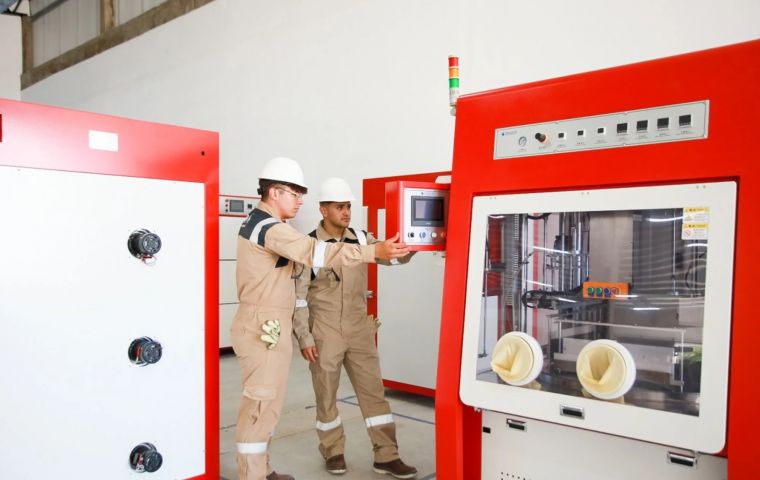MercoPress. South Atlantic News Agency
Production of lithium batteries to start in September in Argentina
 The Y-TEC plant at the University of La Plata will generate cells for batteries for 2,000 homes to supply wind and solar energy to populations isolated from the grid, Salvarezza explained
The Y-TEC plant at the University of La Plata will generate cells for batteries for 2,000 homes to supply wind and solar energy to populations isolated from the grid, Salvarezza explained Argentina's first National Plant for the Technological Development of Lithium Cells and Batteries will start production in September on the premises of the National University of La Plata (UNLP), Y-TEC (a subsidiary of the state-owned oil company YPF) head Roberto Salvarezza announced Thursday.
With this new development, Argentina will become a “strategic player” in the region for the production of lithium batteries, Salvarezza also pointed out. The UNLP plant will enable the production of battery cells that will allow the storage of wind and solar energy for populations that are currently disconnected from the electricity grid, it was also explained.
“We will have this same technology for a plant in the province of Santiago del Estero, which will be five times bigger than this one,” Salvarezza also said.
Last year, over 115 tons of high-tech equipment arrived from China for the first such plant in Latin America.
Lithium is a key mineral in the manufacture of more efficient, cleaner, and lighter energy storage systems, and has even led to the emergence of hybrid and electric vehicles. The cells are the functional units that generate energy and are assembled with an electronic controller; this constitutes the lithium battery which, according to Salvarezza, “are 30 to 40% of an electric vehicle”.
“The plant of Y-TEC and the University of La Plata, which will generate cells for batteries for 2,000 homes, will basically be used to supply wind and solar energy to rural schools, public institutions, or populations isolated from the [electricity] grid,” Salvarezza said.
The two plants are “enough to meet the real demand in the country in terms of electric vehicles and solar and wind energy storage,” Salvarezza also explained.




Top Comments
Disclaimer & comment rulesCommenting for this story is now closed.
If you have a Facebook account, become a fan and comment on our Facebook Page!